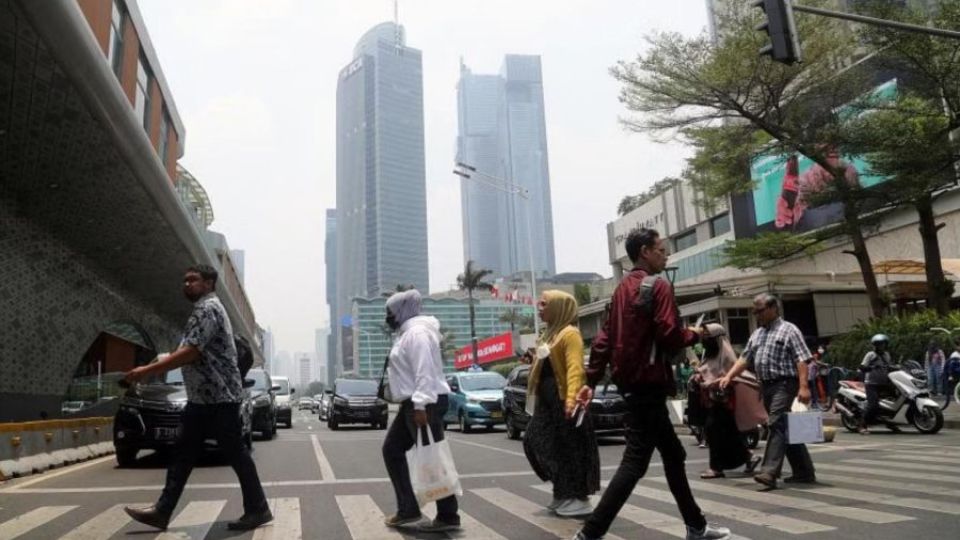JAKARTA (ANN/THE STRAITS TIMES) – As Indonesia’s much-anticipated election season gets underway, a challenging economic backdrop has thrown a curveball into the nation’s political landscape.
With the Indonesian Rupiah (IDR) in decline, mounting concerns about food security, and a looming current account deficit, the country faces significant economic hurdles. What’s more, potential investors are adopting a cautious stance, choosing to remain on the side-lines until the winner emerges from the February 14 poll.
In the lead-up to a three-way presidential race, Defense Minister Prabowo Subianto and former Central Java governor Ganjar Pranowo, the two prominent front-runners, find themselves locked in a fierce competition, as indicated by the latest survey results.
The third candidate is former Jakarta governor Anies Baswedan.
Political observers say the state of the economy not only affects voter sentiment towards the incumbent government, but could also stoke instability when campaigning kicks off in November.
Indonesia’s five-yearly elections have often been marked by heightened social tensions, as politicians step up rhetoric that may lead to heated public debates as well as street protests.
“The timing of the election is not very ideal,” said Dr Adriana Elisabeth, a lecturer in the social and political science department at the Pelita Harapan University in Tangerang, a satellite town outside Jakarta.
She explained that the country is still tackling the after-effects of the Covid-19 pandemic on the economy, such as slow growth and high unemployment.
October alone has seen the IDR rank among Asia’s worst-performing currencies, slumping more than two per cent against the US dollar (USD) to reach its weakest level since April 2020.
To curb the IDR’s slide, the Indonesian central bank on Oct 19 raised its benchmark interest rate by 0.25 percentage point to six per cent, making car loans and house mortgages more expensive.
Adding to voters’ woes is the surging price of rice, the main staple, which the national police’s food security task force, or Satgas Pangan, has attributed to supply shortages caused by failed harvests amid the El Nino phenomenon in 2023.
Mr Adhin Ardhana, a Jakarta-based copywriter, said that 2023 is the most difficult year he has experienced.
“All prices rose… equity stock prices down, wars, a lot of businesses collapsed, widespread job cuts…” Mr Adhin posted on X, formerly Twitter, on Oct 12. “Everyone is trying to deal with his own problems. No one is helping you except yourself. Be ready.”
Indonesia has also seen the value of its exports decline, with its current account deficit totalling USD1.9 billion (SGD2.6 billion) or 0.5 per cent of the country’s gross domestic product, in the April-June period. The central bank said this was mainly due to the decline in commodity prices amid a slowing global economy.
Indonesia is the world’s largest palm oil exporter and a main exporter of processed nickel, which is used to make electric vehicles.
Ms Dian Ayu Yustina, an economist with Jakarta-based Bank Mandiri, told the source that global factors, especially concerns about US benchmark interest rates that are expected to remain high and the Middle East geopolitical crisis, have been the main reason behind the economic volatility in Indonesia.
According to Dr Adriana, while unfavourable conditions in the economy could affect political outcomes, uncertainty in politics in turn could also affect how the economy performs.
One issue that has divided opinion is the controversial Constitutional Court decision on Oct 16 that cleared the path for the 36-year-old Gibran Rakabuming Raka, President Joko Widodo’s elder son, to run as a vice-presidential candidate with Mr Prabowo despite being below the minimum age of 40.
The court ruled that a person under 40 can run in the presidential race if he is or has been an elected regional leader. Mr Gibran is currently the mayor of Solo.
“Democracy currently is a bit unstable in Indonesia due to the Gibran controversy. There is widespread belief we are experiencing a setback (in democracy). The Gibran case would likely continue to be a constant source of debates going forward,” Dr Adriana told the source.
“We all have to anticipate if the situation during campaigning leads to instability.”
Observers have said that the ruling paves the way for the rise of a political dynasty, and pulls the country back to the era of former strongman leader Suharto.
Dr Adriana noted that many investors have resorted to a wait-and-see position, refraining from making an investment decision on Indonesia until after the election.
“They are waiting for the results of the election, and want to know what policy lines whoever wins the election will take. None of the three presidential candidates has shared clear views so far,” Dr Adriana said.







